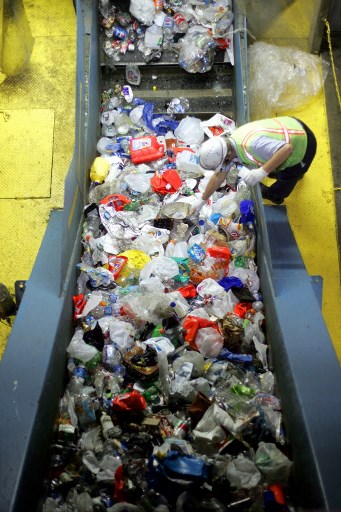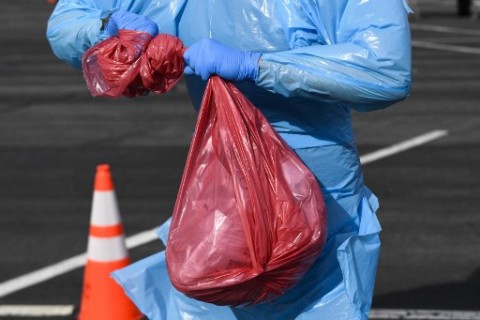
LOS ANGELES, California (AFP) — Garbage be gone: California Thursday passed an ambitious law mandating reduction of non-recyclable plastic by at least 30 percent in six years, while also placing responsibility on producers.
The measure is meant to tackle the persistent problem of plastic refuse — in California, about 85 percent of plastic waste ends up in landfills, according to the CalMatters publication.
“California won’t tolerate plastic waste that’s filling our waterways and making it harder to breathe. We’re holding polluters responsible and cutting plastics at the source,” Governor Gavin Newsom said after he signed the law Thursday.
Earlier in the day the bill had passed the state Senate unanimously and had passed the Assembly the day before.
The measure mandates that at least 30 percent of plastic packaging in the state be recyclable by January 1, 2028, and raises the amount to 65 percent by 2032.
It also requires a 25 percent reduction in non-recyclable expanded polystyrene, colloquially known as styrofoam, in three years, with a total ban to go in place if this goal is not met.
Single-use plastic containers, meanwhile, must decrease by 25 percent by 2032.
“This is the most comprehensive plastic waste reduction legislation in the nation,” The Nature Conservancy environmental nonprofit said.

The law, officially titled SB54, shifts the onus of responsibility for the plastic waste from users to producers, a move applauded by environmental organizations.
It clearly states that companies that do not comply with the measures will be fined up to $50,000 per day.
“Reducing plastic pollution at the source will cut emissions to air & water and reduce plastic that gets in our ocean,” tweeted the Oceana nonprofit.
“Countless hours of work have led to this moment,” state senator and bill author Ben Allen tweeted following his chamber’s vote.
“It’s time for California to lead the nation and world in curbing the plastic crisis. Our planet cannot wait.”
© Agence France-Presse








